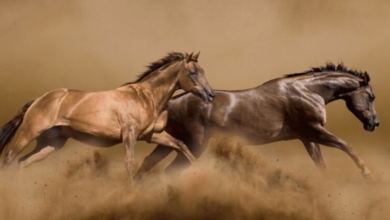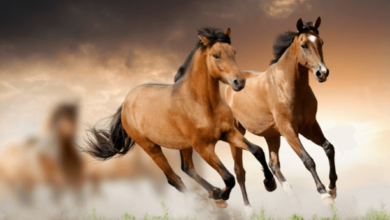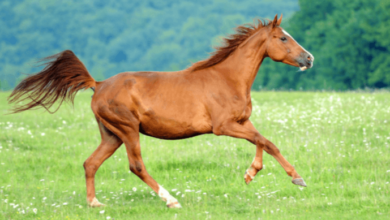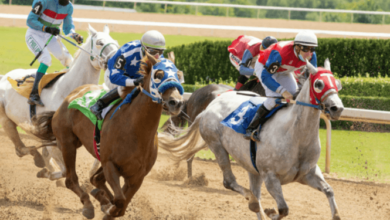What are the key factors you consider when selecting a horse for racing?
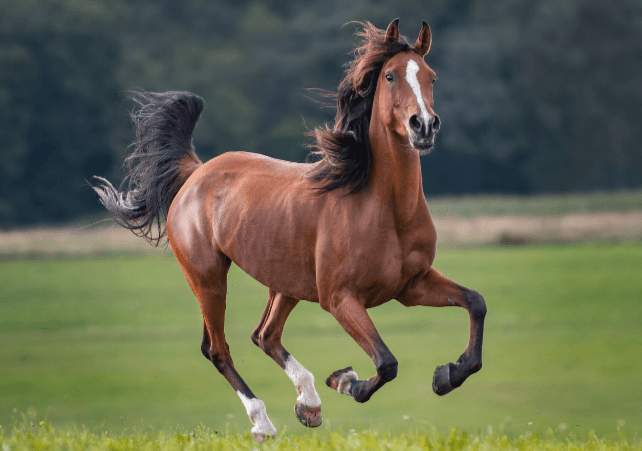
Introduction
Selecting a horse for racing is a complex and nuanced process that requires a blend of expertise, intuition, and thorough analysis. This process is not merely about finding a fast horse; it’s about identifying a horse with the right combination of genetic traits, physical characteristics, health status, and psychological attributes. Whether you’re a seasoned trainer, a passionate owner, or a new enthusiast, understanding these factors can significantly enhance your chances of success on the racetrack.
Pedigree and Bloodline
The pedigree of a horse is often the first aspect examined when selecting a racehorse. A strong bloodline can be an indicator of potential racing success. Horses from lines with a history of winning races are more likely to inherit the physical and mental traits needed for competition.
- Genetic Potential: Horses with successful ancestors often possess inherent abilities that make them strong contenders. Researching a horse’s sire and dam, as well as their past performances, can provide valuable insights into what you might expect from the horse.
- Lineage of Winners: Investigate the performance records of the horse’s family. A lineage that includes Derby winners, stakes champions, and horses known for their endurance and speed can be a significant advantage.
Conformation and Physical Attributes
Conformation refers to the physical structure of the horse and how well its body is built for racing. Proper conformation ensures efficiency in movement and reduces the risk of injury.
- Muscular Build: A racehorse should have well-developed muscles, particularly in the hindquarters and shoulders, which are crucial for speed and power.
- Legs and Hooves: Strong, well-aligned legs and healthy hooves are essential. Inspect for any signs of past injuries or structural weaknesses.
- Body Proportions: Look for a horse with a balanced body, where the length of the back matches the length of the legs, ensuring optimal stride length and efficiency.
Health and Veterinary Assessment
The overall health of a horse is paramount. A thorough veterinary examination can uncover underlying health issues that may not be immediately apparent.
- Medical History: Review the horse’s medical records for any previous illnesses or injuries. Recurrent issues or chronic conditions could impact future performance.
- Current Health Status: Ensure the horse is in peak physical condition at the time of selection. Regular vet checks and health screenings can help identify any potential problems early on.
- Injury Recovery: If the horse has a history of injury, evaluate how well it has recovered and whether it can sustain the demands of racing.
Temperament and Behavior
A racehorse’s temperament significantly influences its performance. The ideal racehorse is both spirited and manageable.
- Trainability: Horses that are easy to train and responsive to commands can adapt more quickly to the rigorous demands of racing.
- Composure: A horse that remains calm under pressure, handles the noise and excitement of the racetrack, and can focus despite distractions is invaluable.
- Competitive Spirit: Horses that exhibit a natural desire to win, demonstrating determination and resilience, often perform better in competitive settings.
Training and Conditioning
Even a horse with excellent pedigree and conformation needs proper training to realize its full potential. Training focuses on developing strength, speed, and endurance.
- Training Regimen: Evaluate the horse’s current training program. Effective training involves a balanced mix of workouts, rest, and recovery.
- Trainer’s Expertise: The experience and skill of the trainer play a crucial role. A knowledgeable trainer can tailor the training to suit the horse’s specific needs and capabilities.
- Conditioning: Consistent conditioning helps build the horse’s stamina and prepares it for the physical demands of racing.
Diet and Nutrition
Proper nutrition is critical for a racehorse’s performance and overall health. A balanced diet provides the energy and nutrients needed for training and racing.
- Diet Plan: Ensure the horse is on a diet rich in essential nutrients, including proteins, fats, vitamins, and minerals.
- Feeding Schedule: Regular feeding schedules that align with the horse’s training regimen help maintain optimal energy levels.
- Supplements: Consider supplements to address specific needs, such as joint health, muscle recovery, and digestive health.
Age and Maturity
Age plays a significant role in a horse’s racing career. Younger horses might have more potential for growth and development, while older horses bring experience.
- Prime Age: Racehorses typically peak between the ages of 3 and 5. Horses in this age range often combine the right balance of physical maturity and youthful energy.
- Development Stage: Evaluate where the horse is in its development. A younger horse might still be growing into its full potential, whereas an older horse may have reached its peak performance.
Racing Record and Experience
Analyzing a horse’s past performances can provide insights into its potential future success.
- Track Record: Examine the horse’s performance in previous races. Consistent finishes in the top positions can indicate a strong racing capability.
- Race Types: Consider the types of races the horse has competed in and its performance in various conditions and distances.
- Experience Level: Horses with more racing experience may handle the pressures of competition better, although this must be balanced with their health and condition.
Environmental and External Factors
External factors such as climate, track conditions, and the competition level at different racetracks can impact a horse’s performance.
- Climate Adaptability: Consider how well the horse adapts to different weather conditions, as races occur in various climates.
- Track Preference: Some horses perform better on certain types of tracks (e.g., dirt vs. turf). Understanding these preferences can guide race selection.
- Competition Level: Assess the competition the horse will face. Stronger fields can challenge a horse more but also help gauge its true potential.
Investment and Financial Considerations
Selecting a racehorse involves significant financial investment. It’s essential to weigh the costs against the potential returns.
- Initial Purchase Price: The cost of acquiring a horse varies widely based on its pedigree, age, and race record.
- Maintenance Costs: Ongoing expenses include training fees, veterinary care, boarding, and nutrition.
- Potential Earnings: Evaluate the potential return on investment through race winnings, stud fees, and resale value.
Selecting a Horse for Specific Races
Different races have unique requirements, and selecting a horse suited for a particular race involves specific considerations.
- Race Distance: Ensure the horse is trained for the distance of the race, whether it’s a sprint or a long-distance race.
- Race Conditions: Understand the conditions of the race, such as track surface and weather, and select a horse that performs well under those conditions.
- Competition Analysis: Analyze the competition to assess where your horse stands among the entrants.
Breeding and Future Potential
For those looking beyond racing, the breeding potential of a horse can be a critical factor.
- Stud Value: Successful racehorses can become valuable breeding stock, generating income through stud fees.
- Genetic Contribution: Evaluate the horse’s genetic traits that can be passed on to offspring, enhancing the quality of future generations.
Technology and Tools for Selection
Modern technology provides various tools and data analytics to aid in selecting the best racehorses.
- Genetic Testing: Advances in genetic testing can predict a horse’s potential based on its DNA.
- Performance Analytics: Use data analytics to track and predict performance trends, injury risks, and optimal training strategies.
- Health Monitoring: Technology like wearable devices can monitor a horse’s health and fitness levels, providing real-time data to inform training and care.
Expert Consultation
Engaging with experts such as trainers, veterinarians, and bloodstock agents can provide invaluable insights and guidance.
- Trainer Insights: Experienced trainers can provide a realistic assessment of a horse’s potential and suitability for racing.
- Veterinary Advice: Vets can offer detailed health assessments and advice on managing any health concerns.
- Bloodstock Agents: These professionals specialize in buying and selling horses and can help identify promising candidates.
Ethical Considerations
Ensuring the welfare of the horse should always be a priority. Ethical considerations include humane treatment and fair racing practices.
- Animal Welfare: Prioritize the health and well-being of the horse in all decisions.
- Fair Training Practices: Avoid unethical training methods that can harm the horse.
- Racing Integrity: Support and adhere to regulations that promote fair and safe racing environments.
Economic and Industry Trends
Staying informed about industry trends and economic factors can influence your selection strategy.
- Market Trends: Understanding market dynamics can help make informed decisions about buying and selling horses.
- Industry Developments: Keep abreast of changes in racing regulations, technologies, and best practices.
Conclusion
Selecting a horse for racing is a multifaceted process that combines art and science. By considering pedigree, conformation, health, temperament, training, and a myriad of other factors, you can enhance your chances of choosing a winning racehorse. Always prioritize the well-being of the horse and seek expert advice to navigate this complex and rewarding endeavor successfully.
FAQs
What is the most important factor in selecting a racehorse? While all factors are important, pedigree and conformation are often considered critical as they significantly influence a horse’s potential and racing capability.
How does a horse’s age affect its racing potential? Horses typically peak between the ages of 3 and 5, combining physical maturity and youthful energy. However, individual development stages vary, and older horses can still perform well.



